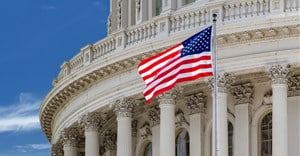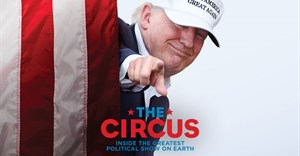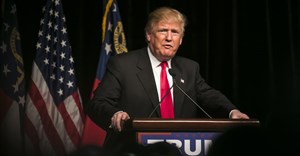Trending
Elections 2024
Jobs
- Intern Designer/Developer Johannesburg
- Delivery Director Sandton
- Packaging Design Lead Cape Town
- Graphic Design Berea
- Mid Designer Cape Town
- Mid-Level Visual Designer Cape Town
- Junior Graphic Designer Umhlanga
- Mid/Senior Graphic Designer Kloof
- Client Service Manager Johannesburg
- Graphic Designer Somerset East
Obama - winner of the digital race
Although it was a mix of the new and the old, Obama opted to embrace new media more at the expense of TV. The Obama team used every relevant medium to harness the power of digital. This interactivity is still the envy of brands out there, beating the likes of Nike and Apple at their own game as witnessed by Obama being named Marketer of the Year by the National Advertisers' annual conference in 2008.
It is important to look at the forms of online campaigns he used separately or interactively to create this historic campaign. These are mainly email, search marketing, social media, mobile advertising, in-game advertising and viral videos among others.
Looking at some of the campaign highlights:
- Email and text:
In June before announcing his running mate, he ran an email campaign and text message campaign that could be forwarded immediately. This was highly viral creating unprescendant levels of buzz. His new media option helped him to get a huge network of supporters and also to raise huge sums of money by asking for small amounts of money. Emails requesting $50 or $100 were sent to addresses gathered via websites and interfaces such as Facebook and virals. As polling day neared, 3.1 million people had donated money. - Search marketing
Your brand isn't what you said it is, rather it's what Google says it is. The team made good use of search to control the Barack Obama brand message. The first google page when you search Barack Obama is populated with his profiles on twitter, facebook, MySpace and his official blogs. This spins positive propaganda that could take years to indoctrinate to such large audiences he was addressing. You can imagine if this vital space was dominated by opposition or anti-Obamas. He taught the world a lesson, or rather the brands and other political candidates a lesson; your brand isn't what you said it is, it's what google says it is - a time for brands to embrace search engine marketing. - Social media
The use of social media in the campaign and the momentum it picked was so strong that the campaign became self-driven, people-driven and picked its own energy. It all boils down to seeding in the right social media.The official Barack Obama page on facebook has more than five million supporters. He formed the first political social network through mybarack.com. He has a twitter account that has made him more accessible. He even has a MySpace account despite its rather unfriendly user inter-face.
The main challenge though for brands in using social media is being prepared to interact with people and fear of losing brand control. In the current consumer driven environment, serious brands have no option but to participate in the conversations in social media. If the product is right and delivers results, it can be catapulted to new heights. If the product is not right, the more reason to be there to control damage. Either way, it's a fight you cannot win outside the ring. The shifting digital media landscape has created a cultural shift in the way that consumers and audiences engage, be it commercial brands or politics.
- Mobile
It is widely agreed that trends on mobile advertising are shifting towards developing applications. The Barack Campaign couldn't be more right in mixing the predominant format of text messaging and a mobile application. The Obama iphone application enabled supporters to call friends, receive campaign updates, to see local campaign events and much more. Supporting a brand or party couldn't get more personal, what I would call brand interaction in your pocket or handbag.
This is a classical example of targeting the right medium, using the right tools.
- In-Game advertising
The realisation that engagement goes far in delivering messages has taken the Obama campaign to even gamers who according to recent studies spend more time on games rather than watching TV. Serious gamers are more of anti-social (so I think) and would hardly leave their hobby to have a look or listen to a TV ad or radio ad. These are normally classified as the hard-to reach customers. The Obama election campaign even reached these gamers.Below is a screen shot of Obama's campaign in "Burnout Paradise"

- Viral video
Ben Relles in June 2007 created an online music video called "I Got a Crush on Obama" starring Amber Lee Ettinger as Obama Girl. The video and its resulting news coverage by October 2007 had been seen more than 100,000,000 times on sites like YouTube and on TV programs ranging from CNN's "Situation Room" to ABC's "Good Morning America."Watch the video here http://www.youtube.com/watch?v=wKsoXHYICqU
These highlights of Obama's campaign have a historic milestone in online marketing. It will be for a long time be remembered as the campaign where politics turned digital. I would have loved to see the campaign reach dwellers of second life. I wonder what form it could have taken on a platform like there.com. I can imagine an Obama hangout beach, Obama virtual accessories and clothing or even like Coca-Cola have an Obama Town.
General lessons to learn from the Obama campaign
Without going into the detailed areas of audience research, segmentation, targeting and all the technical stuff, there are lessons anyone can take from the Obama election.
Lesson number one: Move with times
When one of John McCain's e-campaign team said “John McCain is aware of the internet”, he confirmed indirectly that McCain is out of touch with the times. The internet and new media is such a fundamental part of today's economy worldwide that it requires more than a mere awareness. Just as much as you would not expect Prime Minister Brown to say he is aware of banks when addressing issues about the credit crunch.
Lesson number two: Be pro-active
During the campaign period, Obama announced that he is appointing a cabinet chief technology officer, an idea that seemed to make little sense to those who haven't yet grasped that we are in an unstoppable internet era.
This new frontier is likely to see shifting trends in government structures. We are likely to see Technology Cabinet portfolios, Government Technology Directors and strategist's posts being created. This does not only apply to governments in the developed world, but to any progressive administrations the world over. Internet growth and usage in developing countries is growing at faster rates than in the West where it has reached stagnation levels. Take for example, Facebook growth in 2008 in the USA was only 37% compared to 400% in Africa and the Middle East.
Lesson number three: Work with the best
It is no coincidence that Facebook co-founder Chris Hughes joined Obama's team in 2007, helping to create the first ever socially-networked presidential campaign. This new digital era requires sharp skills that can stay abreast of the fast changing digital landscape.
Proper skills hiring would ensure that you avoid blind copying of strategies used in the Obama campaigns. A new media strategy relevant to your brand had to be devised.
Lesson number four: Now is the time
For companies, brands and political parties, now is the time to take those first steps in controlling your brand online and to implement digital strategies. There hasn't been a better time as there is a living proof that, Yes You Can, with digital.

















